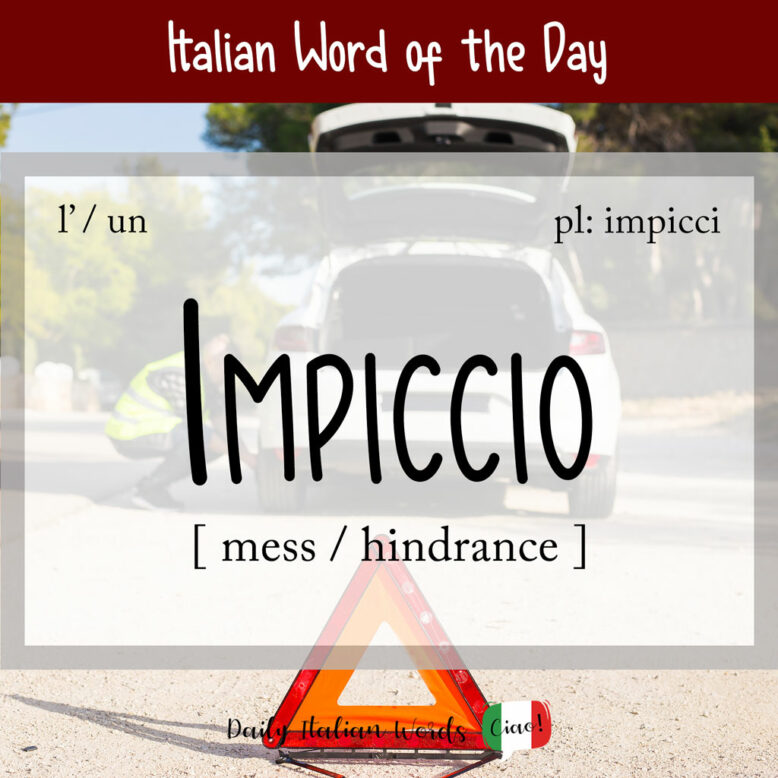While watching the Italian Netflix drama Suburra, I couldn’t help but notice how many times the word impiccio (masculine, plural: impicci) came up in conversation, probably because the main characters always seem to be in a mafia-related bind of some sort!

Impiccio can be translated in many ways in English including hindrance, mess, nuisance, trouble or tight corner. The important thing to know is that it denotes anything that gets in the way, bothers or disturbs.
Quella sedia mi è d’impiccio.
That chair is in my way.
Ci siamo trovati in un bell’impiccio!
We got ourselves into a real mess!
Suo fratello è riuscito a tirarlo fuori dagli impicci.
His brother managed to get him out of trouble.

It comes from the verb impicciare which means to hinder or to obstruct.
Below are a few verbs you’ll often see paired with impiccio:
- trovarsi in un impiccio = to find oneself in a bind
- mettersi in un impiccio = to get into a mess
- cavarsi d’impiccio = to get out of a fix
- liberarsi da un impiccio = to get out of a fix
- tirarsi fuori dagli impicci = to get out of trouble
- dare impiccio (a qualcuno) = to bother (someone)
- essere d’impiccio (a qualcuno) = to be in the way (of someone)
Synonyms of impiccio you’ll likely to hear in Italian are impedimento (hindrance), ingombro (encumbrance), intralcio (hindrance, obstacle) and ostacolo (obstacle).
Heather Broster is a graduate with honours in linguistics from the University of Western Ontario. She is an aspiring polyglot, proficient in English and Italian, as well as Japanese, Welsh, and French to varying degrees of fluency. Originally from Toronto, Heather has resided in various countries, notably Italy for a period of six years. Her primary focus lies in the fields of language acquisition, education, and bilingual instruction.


